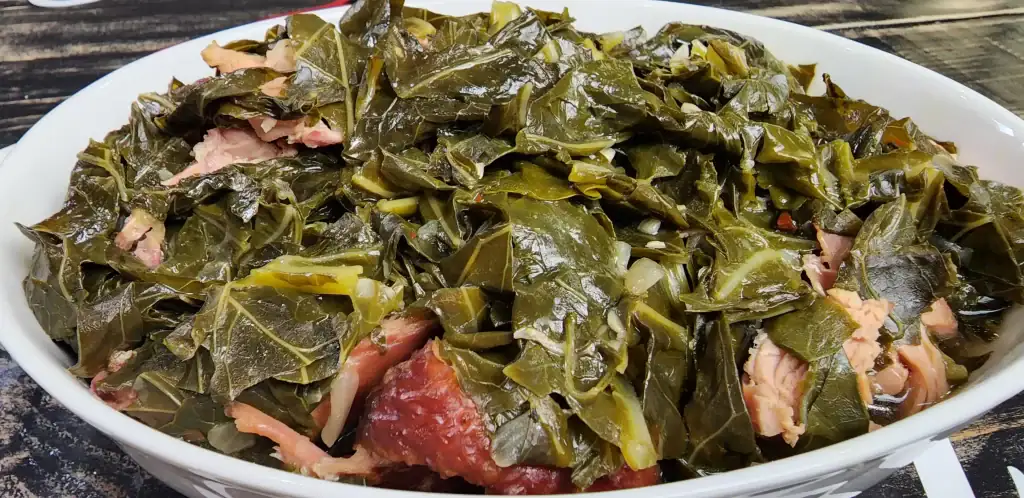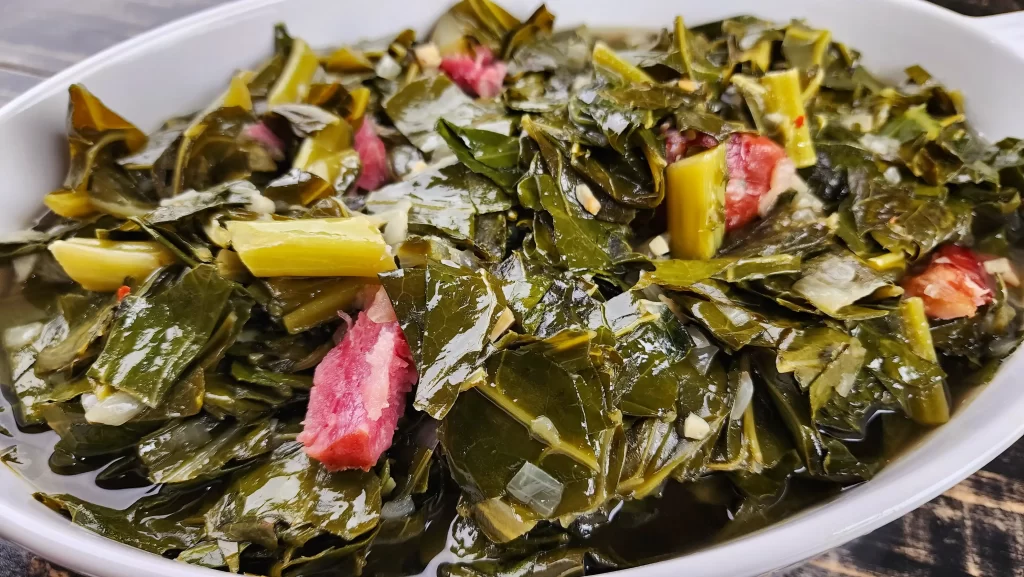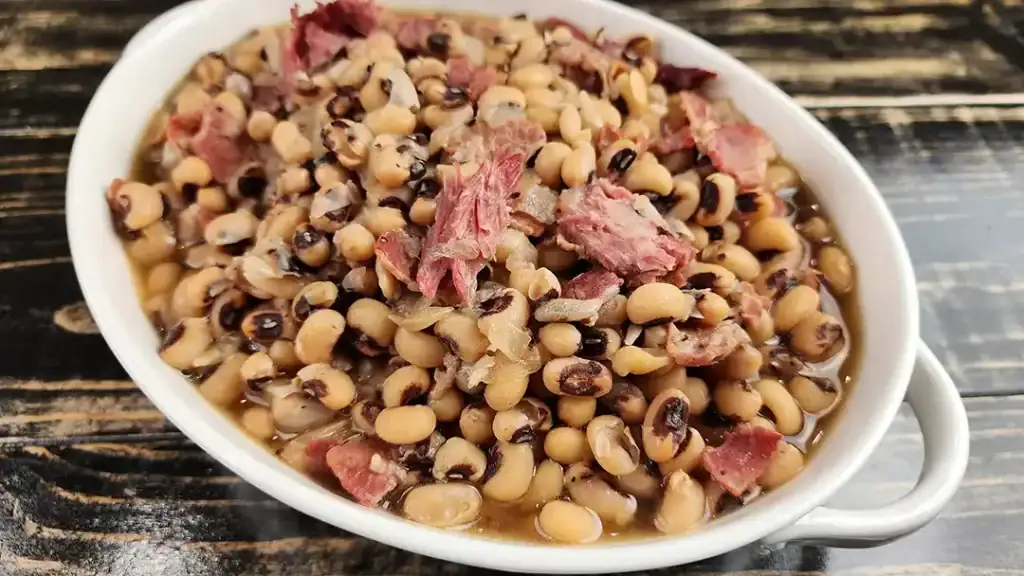Soul Food: Its History and Definition from the Queen of Soul Food Cooking
Last Updated on February 20, 2026 by Barbara
Soul Food is more than just a style of cooking, and it’s not just another name for Southern Cuisine. It is the result of the plight of African Americans in the United States from slavery to modern times. Its flavors are woven from history, culture, and the will to survive. It is the African American experience on a plate.

Defining Soul Food
Soul food can accurately be defined as African American cuisine originating in the enslaved states of America. During this time, enslaved Africans were given the remnants of crops and the discarded, undesirable parts of animals that their enslavers found unpalatable. This culinary development features dishes that were born out of necessity and resourcefulness during times of hardship. Soul food has evolved into comforting and flavorful dishes that utilize ingredients such as vegetables, grains, legumes, and seasoned meats. Soul Food is prepared by methods that extract deep and complex flavors. Beyond mere sustenance, soul food has become an intrical part of the African American experience and culture. Its techniques are passed down through generations along with the stories of hardship and perseverance. It now symbolizes resistance, warmth and love, communal bonding and heritage.
Historical Development and Cultural Fusion
The historical context of soul food is integral to understanding its profound significance. Enslaved Africans brought with them agricultural practices, cooking techniques, and traditions from West Africa. With limited resources, they ingeniously adapted their expertise to their new environment and blended their cultural cuisine with Indigenous American and European cooking methods. This ingenious fusion created distinctive dishes that would eventually be recognized as Southern but are truly and uniquely those of the African American enslaved people.
Rise of the Term “Soul Food”
The term “soul food” rose in popularity during the 1960s at the height of the Civil Rights Movement, reflecting African American identity and pride. It symbolized the cultural and spiritual connection of African Americans to their roots while emphasizing unity and empowerment within the Black community. Culinary historian Jessica B. Harris notes that the term “soul” signified the heart of African American culture giving rise to the expression “soul food.”
Key Iconic Dishes
Traditional Soul food dishes often center around key ingredients and staples. Each of these ingredients and dishes have a historical significance. Below are a few traditional soul food dishes that are true staples:

Fried Chicken has diverse culinary roots, in soul food cooking it become a part of our community and family gatherings, with recipes handed down through the generations.

Collard Greens: There are few dishes better than Collard Greens that have been slow-cooked with smoked meats, usually ham hocks or smoked turkey. Collard greens on your soul food plate.

Cornbread is a fundamental part of soul food. One reason we cornbread is loves so much is because of its affordability and versatility.

Black-eyed Peas are enjoyed all year round. They are traditionally prepared and eaten on purpose, on New Year’s Day. They represent good luck, prosperity, and abundance in the coming year.

Macaroni and Cheese: Baked macaroni and cheese is a soul food classic, symbolizing the ultimate in comfort and abundance.

Sweet Potato Pie: Sweet Potato Pie is the ultimate Soul Food dessert. Served every holiday from Easter to Christmas. It is truly a must have on the soul food dessert table.
Click Here For More Iconic Soul Food Dishes
Evolution and Contemporary Relevance
Today, soul food has been adopted and enjoyed by a diverse group of people. Contemporary culinary artists, myself included, explore modern preparation methods, such as air frying instead of deep frying, reducing salt and sugar content. Soul food remains relevant while preserving its roots and cultural importance. Its increasing popularity exemplifies the appreciation of African American contributions to the nation’s culinary landscape.
Soul Food’s Legacy
I take pride in sharing the recipes of my culture and knowing that it’s not just about the food but it’s also represents the strength and perseverance of my people. Soul food embodies my history, the resilience of my people and what brings my culture together. Understanding its origins and evolution enriches our appreciation of this cuisine, ensuring that future generations can continue to savor and honor the enduring legacy of soul food.
SoulFoodCooking101.com — Classic Soul Food Recipes
Preserving the Legacy of Authentic Southern Cooking.
Join the SFC Family and Sign up for updates and recipes sent directly to your inbox!
